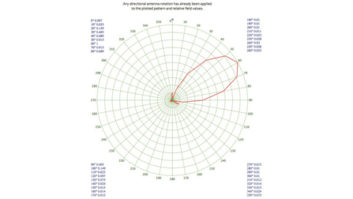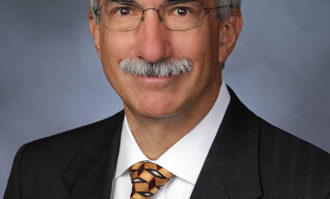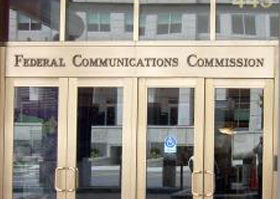Tell City Denied
Oct 1, 2014 9:00 AM, By Lee Petro
The FCC”s Media Bureau issued a big decision regarding the long-pending Tell City waiver request. The waiver request proposed to move an FM translator”s transmitter site and operating channel so that it would operate as a fill-in translator for an AM station. The waiver sought to build off the prior Matoon waivers, but the Media Bureau ultimately found sufficient differences to deny the waiver request.
First, the Matoon waiver standard included the requirement that the 60 dBu contour of the existing contour overlapped with the 60 dBu contour of the proposed facility. This requirement was important to the staff when it granted the first Matoon waiver because the two facilities were mutually exclusive, i.e., both could not be authorized to operate at the same time. The Matoon waiver also focused on the use of the FM translator to rebroadcast the signal of an AM station. Since the first waiver request was granted, a significant number of other FM translators have requested waivers.
However, the facilities proposed in the Tell City waiver request were not mutually exclusive. Instead, the Tell City applicants sought a waiver of the requirement, arguing that no other applicant would be harmed. The principal involved is based in a 1945 Supreme Court decision � Ashbacker � that underpins the FCC”s processing of applications.
Where two applicants are given the opportunity to file applications that could be mutually exclusive (i.e., the LPFM filing window), the FCC is said to have satisfied Ashbacker. When one applicant files a �minor� change application, Ashbacker is not an issue because no other party would be able to file an application that conflicted with the minor change application, in light of the minor change application”s mutual-exclusivity with the applicant”s underlying authorization.
However, in the case of Tell City, the applicant sought a waiver to file an application that was not mutually exclusive with its current authorization, but it still sought processing as a minor change application. Setting aside the laudable goal of beefing up the number of FM translators eligible to fill in AM signals, the Bureau”s staff focused on the fact that no other party could have filed for facilities that conflicted with Tell City”s proposed facilities since minor change applications are processed on a first-come, first-served basis. Thus, unless another applicant by chance filed an application on the same day as the submission of the Tell City application, that other applicant was out of luck.
Because the submission of Tell City-like applications would largely undermine the FCC”s processing guidelines by eliminating the difference between major and minor change applications, the Bureau found that the waiver request was better suited as a petition for rulemaking.
In fact, the Bureau also noted that there was a rulemaking pending relating to the revitalization of the AM service. In the many proposals set forth therein, the FCC had proposed opening a limited filing window for AM licensees to file for FM translators. So, separate from the finding that a waiver was not appropriate due to Ashbacker concerns, the Bureau pointed to the ongoing rulemaking proceeding as the best source for relief.
As one can imagine, the response by most broadcasters was not supportive, especially since many licensees and the NAB filed comments urging the Bureau to the grant the waiver. In addition, Commissioner Ajit Pai has been vocal in his support for the FCC to promote the AM service. In the wake of the Tell City decision, Commissioner Pai issued a statement expressing his disappointment, and urging the FCC to move forward on adopting rules in the AM Revitalization proceeding.
FCC Dateline

FCC Deadlines:
October 1, 2014 � Annual EEO Public File Reports placed in station”s public file in Alaska, Florida, Hawaii, Iowa, Missouri, Oregon, Washington, American Samoa, Guam, the Mariana Islands, Puerto Rico, Saipan, and the Virgin Islands.
October 1, 2014 � Biennial Ownership Reports for Noncommercial stations in Iowa and Missouri must be filed with FCC and placed in public inspection file.
October 10, 2014 � Third Quarter issues/Programs lists must be placed in public inspection file in all states.
Petro is of counsel at Drinker Biddle & Reath, LLP. Email: [email protected].







